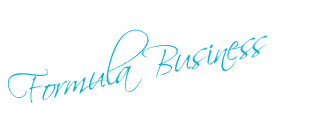Read (or at least skim) all parts of the reading. Sometimes the cover, title, preface, introduction, illustrations, appendices, epilogue, footnotes and "about the author" sections can provide you with valuable information.
Identify the genre of the reading. What kind of a reading is it? (Journal article? Mass media? Novel? Textbook?) Why was it written? Who does the author assume is going to read this work? (Books about politics written for an audience of political scientists, for example, might be very different from books about politics written for the general public, for historians, or for sociologists.)
Consider the author. What do you know or what can you learn about this person? Why did he or she write the book? What sources of information and/or methods did he or she use to gather the information presented in the book?
Guess why your instructor assigned the reading. How does it fit in with other readings, class discussions, major course themes, or the purpose of the class?
Get out a calendar and plan your reading. Get out a calendar and plan your reading. Plot the number of days or hours that it may take you to complete the reading. Be realistic. It may help to read one chapter of the reading and then revise your calendar—some readings take longer than others of a similar length. Visit the
Learning Center if you'd like to learn more about scheduling your work or reading more quickly and effectively.As you read, record your reactions and questions. Any reaction or question is valid, from the specific ("What's that word mean?") to the general ("What's her point?"). Write them down now so that you'll remember them later. These reactions and questions can serve as material for class discussion, or they can be the jumping off point for brainstorming a paper.
Read with a friend. Find someone else who is reading the same book. Set reading goals together and plan to share your reactions to sections of the reading before class, after class, over e-mail, and so on.
Visit your instructor during office hours to discuss the reading. Your instructor will set aside hours when he or she will be available to meet with students. This is a great time to talk about the reading, ask questions, share your reactions, and get to know your instructor. You can do this with a friend or in a small group as well.
Think about what is missing in the reading. Issues, events or ideas that are missing, left out, avoided, or not discussed/addressed in the book might be important. Thinking about these omissions can give you a critical perspective on the reading by showing you what the author (consciously or unconsciously) doesn't want to deal with.
If you know you will have to answer a particular question in response to the reading, read with that question in mind.Sometimes faculty will give you essay questions in advance. As you read the text, refer back to those questions and think about your emerging answers to them.

0 komentar:
Posting Komentar